How to Choose Between Folding Doors and Casement Doors?
Modern interior and exterior design solutions are provided with certain convenient features by folding and casement doors. Consumers' preferences for folding doors feature convenience in operation during the transition of premises and creating a single space within the adjacent territory. Casement doors are preferred for their clean and smooth designs.
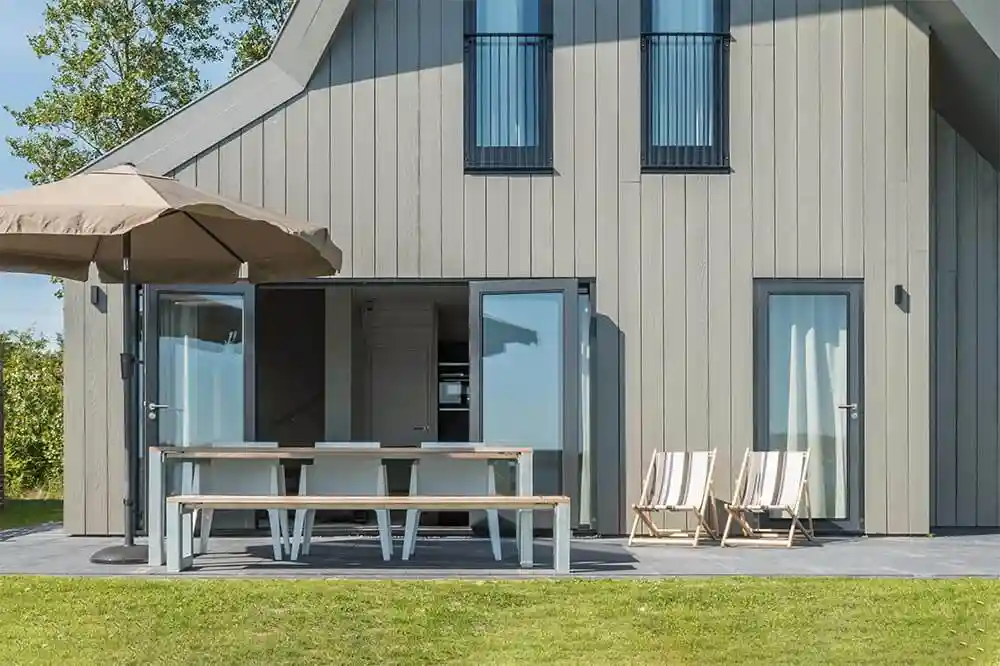
The right choice of doors can do much for improving room conditions. This post will arm you with all that's necessary to make your choice well fit your home's style and functional needs.
Folding Doors
Folding doors are a very cool design for contemporary houses. They fold by sliding along with the track and don't take much space, allowing for large openings.
What Are Folding Doors?
Doors that fold up into more than one section are called folding or bi-fold doors.
Folding doors, most of the time, slide along a track. This typically means there's a wide opening without obstructions, which makes them quite perfect for use on patios, decks, or even as room dividers since they can really transform spaces.
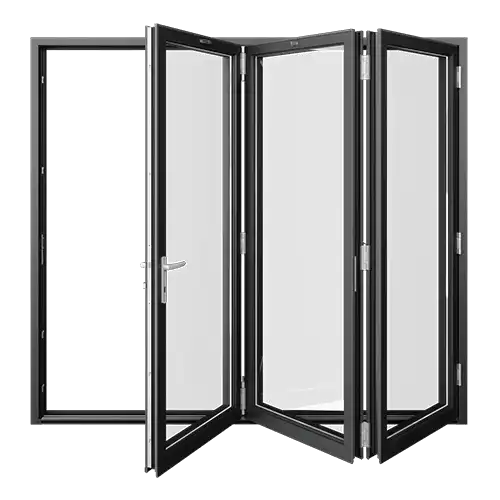
Folding Open
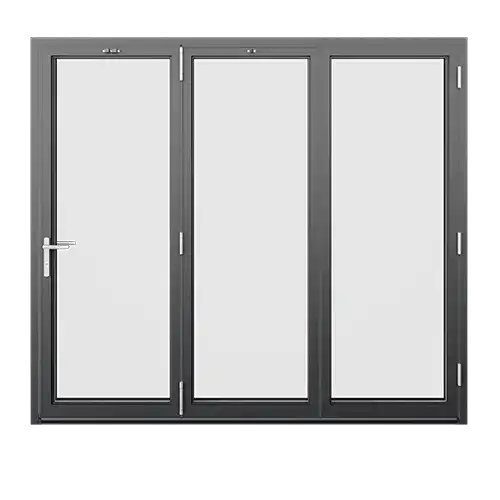
Folding Close
Pros and Cons of Folding Doors
Pros:
• Think of foldable doors more as indoor doors that produce bigger openings rather than just a barrier between your indoor and outdoor spaces. When you imagine it that way, it indeed does make your home feel bigger, too. After all, the psychology of the spaces within your house is influenced by the conditions in which you live.
• Doors can be the main sources of natural light in your home; hence, you save energy since you will use less electric energy during the day. With the folding doors, you will have added natural daylight to your house such that your need for artificial lighting will reduce energy consumption.
• Folding doors gives you an improved, sleek look that is highly contemporary and can sometimes even add value to your property since it integrates with the new architectural styles.
Cons:
• Folding doors cost more than ordinary doors. Such high costs basically reflect the complexity of their mechanism and the quality of materials used.
• Another factor is that they require an opening that is wider in comparison to what a folding door's panel requires in width. In turn, such a factor may prompt structural adjustments to an existing building.
• You need to regularly inspect the tracking mechanism against any debris or dirt that might pile up, affecting the smooth operation of doors; hence, there is a need for constant cleaning.
Casement Doors
Another of the topmost provisions for both residential and commercial spaces is the hinged door, also known as the casement door. This door keeps that old look while bringing real all-important ventilation and easy operation. The casement doors are designed to be simple yet, at the same time, elegant. This makes them a strong favorite in houses that wish to merge functionality with aesthetics.
What Are Casement Doors?
Casement doors are installed to the frame through one or more side hinges in such a way that they can open fully. These doors come in various patterns- single, double, and whether they open inward or outward. Casement doors are usually prepared from aluminum or UPVC, which are enough for durability and energy conservation. The majority of the places practiced in our houses, workplaces, and patios use these doors as they are designed with the utilization of space and practicality in mind.
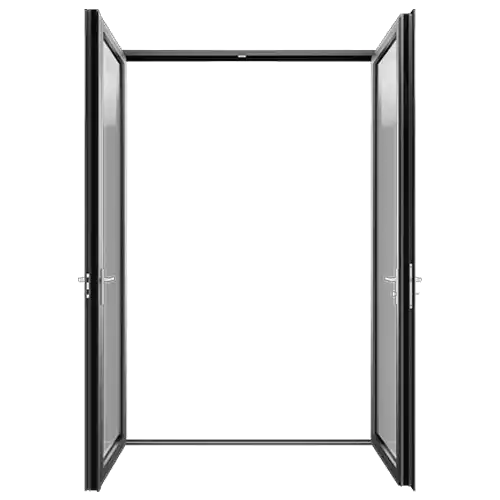
Casement Open
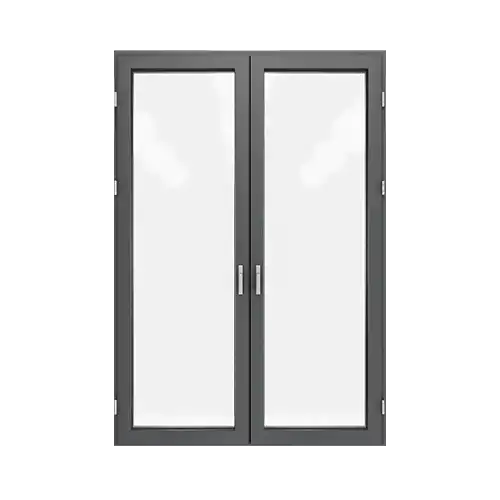
Casement Close
Pros and Cons of Casement Doors
Pros:
• Casement doors have an ageless and high aesthetic value that can be adapted to practically every architectural type. This flexibility makes them ideal for use in traditional and contemporary homes.
• They fit perfectly when closed, which suppresses leakages and therefore boosts energy efficiency plus insulation to also lower energy costs. Such an indicative seal amounts to a very minimal draft and thus low energy costs.
• Casement doors can open fairly wide, thus allowing maximum fresh air due to the full opening. Such a quality would be of benefit mainly in regions with relatively cool temperatures.
Cons:
• Clearance space to swing open, thereby limiting placement in compact areas. Therefore, it is very important that you should mind your furniture placements.
• Not for large openings as good as folding doors. So, it is not the best option for expansive spaces that need a seamless transition.
• Not for large openings as good as folding doors. So, it is not the best option for expansive spaces that need a seamless transition.
Both folding and casement doors have unique benefits. Each suits different spaces and needs, so their functionality, aesthetics, and convenience have to be compared for a better choice to be made.
Folding or Casement Type: What Are the Functional Differences Between These Two Doors?
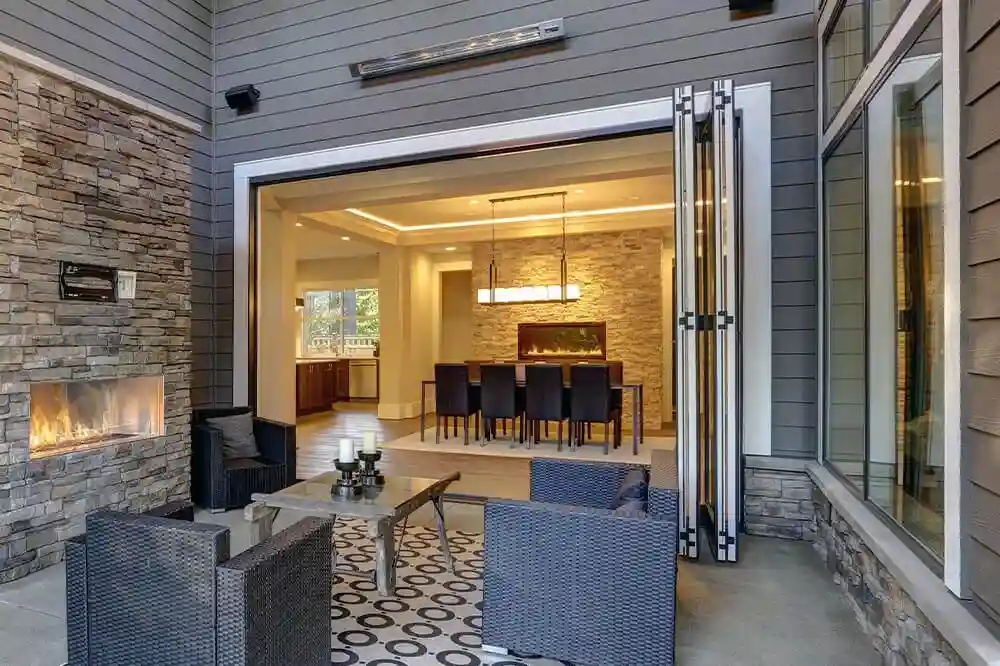
1. Method of Opening
Folding doors glide on a track to open, while multiple panels fold and slide, providing a very wide opening. Casement doors swing open on hinges, which is simpler yet more traditionally open.
2. Space Required at the Wall
Since the folding doors require a certain amount of space for the door leaves to stack up when opened, it is better for large openings.
Casement doors, however, need swing clearance, which can be a limitation in smaller rooms or narrow corridors. You will choose the right option depending on the layout of your space and your usage needs.
3. Ventilation Effect
Folding doors allow space to be fully opened, and hence maximum ventilation can be achieved with it. Casement doors will also make it possible to direct fresh air into the room. But they give a more controlled airflow. The choice will be whether to go for wide, open spaces, or more regulated breeze.
4. Application Places
Folding doors have their most common application on patios, balconies, and large openings connecting indoor spaces with outdoor space. They're apparently seamless about it.
Casement doors, on the other hand, their main application happens at the entrance, rear gardens, and smaller access points where a venerable type of door is preferred.
Aesthetics and Design Differences: Folding Door VS Casement Door
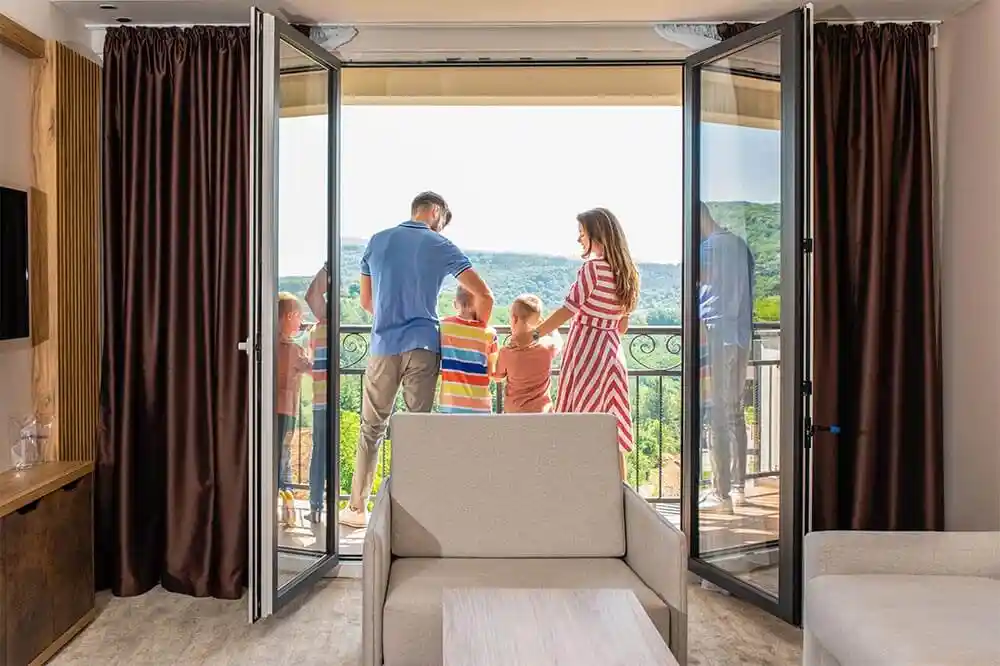
1. Aesthetic Value
Folding doors evoke a modern open-span feel and feature clean lines with ample expanses of glass. They thereby augment the visual aesthetic of contemporary housing. On the other hand, casement doors have a classic, timeless appearance. They work well with both traditional and modern designs. Thus, the visual value varies distinctly by each door style.
2. Flexibility of Design
Folding doors offer huge design flexibility! Large openings merge indoor and outdoor spaces. Thus, it is perfect for use in that patio or grand entrance, if you prefer. They can be customized with various finishes, along with panel configurations. Casement doors, on their part, can swing inward or outward. Hence, in small spaces and large openings, casement doors are perfect because they do not require extra room for folding panels.
3. Material Selection: Aluminum or UPVC?
Aluminum folding and casement doors will be best in such large markets because they will be durable, strong, and will have a slim profile. It will not corrode, and big openings are best suited for this type. For example, UPVC doors are a bit bulky. They happen to be energy-efficient, low-maintenance, and come in various finishes.
Folding Door or Casement Door: Which One Will Be Convenient to Use?

1. Cleaning Method
Folding doors because they have too many door leaves- a lot of tracks gather a lot of dust, so their demands are cleaning regularly.
Casement doors with the single or double door leaf structures are easier to clean, but their exterior cleaning may require a bit more effort if they swing outward.
2. Maintenance
Folding doors come with hinges, rollers, and tracks that result in periodic lubrication so that they move freely and smoothly.
Casement doors also have minimum mechanical components; therefore, they require low maintenance with occasional hinge adjustments to avoid misalignment as they get older.
3. Installation Difficulty
Folding doors are more complex in installation. Professional expertise is needed for folding door installation, as this requires the alignment of precision as well as fitting of tracks.
On the other hand, casement doors are relatively easy to install since they operate just like regular doors. However, proper sealing and placement of hinges are major factors that make them work properly and maintain energy efficiency.
Safety and Insulation: Folding Door VS Casement Door

1. Sealing Performance
Casement door designs typically have advanced weather stripping that eliminates water infiltration. As a result, these are increasingly effective at sealing air and moisture.
On the other hand, folding doors do not have such a high degree of sound insulation as casement doors. However, options for double or triple glazing would improve its acoustic deadening capabilities.
2. Soundproofing
Casement doors will deliver quite a good soundproofing level by sealing excellently, thereby keeping the outside noise totally and completely away. The same cannot exactly be said of the folding doors when it comes to soundproofing, but there is an opportunity to install double-glazing or triple-glazing options to improve their sound-dampening capabilities.
3. Safety
The casement door and folding door are equally viable options in terms of robust security measures. The multi-point locking system perfectly secures both modern doors. The folding doors, with so many door leaves, call for caution about pinch points.
The casement doors are likely to have an outward swing, and they create highly unsafe conditions for all areas with heavy human traffic. It can thus be asserted that the two kinds of doors offer high security, but each applies different principles regarding their safety concerns.
Wanjia's Recommendations for Choosing the Right Door
Wanjia gives you a broad range of premium aluminum and UPVC doors that are tailor-made to be perfect for your home. Our installations are done with precision and long-lasting materials that further give your security at home a notch higher, energy is saved, and the value of the curb is improved. Our skilled team will help you pick between either the incredibly sleek appearance of folding doors or the classical appeal of casement doors.

You can choose between the ultra-modern look of folding doors and the classic functionality of casement doors with the help of WANJIA expert team.
Conclusion
Folding and casement doors have distinct advantages, making them suitable for different needs. Folding doors provide seamless indoor-outdoor transitions, while casement doors offer superior insulation and security.
Your choice should depend on space, design preferences, and functionality. No matter which type of door you prefer, selecting high-quality materials and expert craftsmanship ensures the best results for your home or office space.
